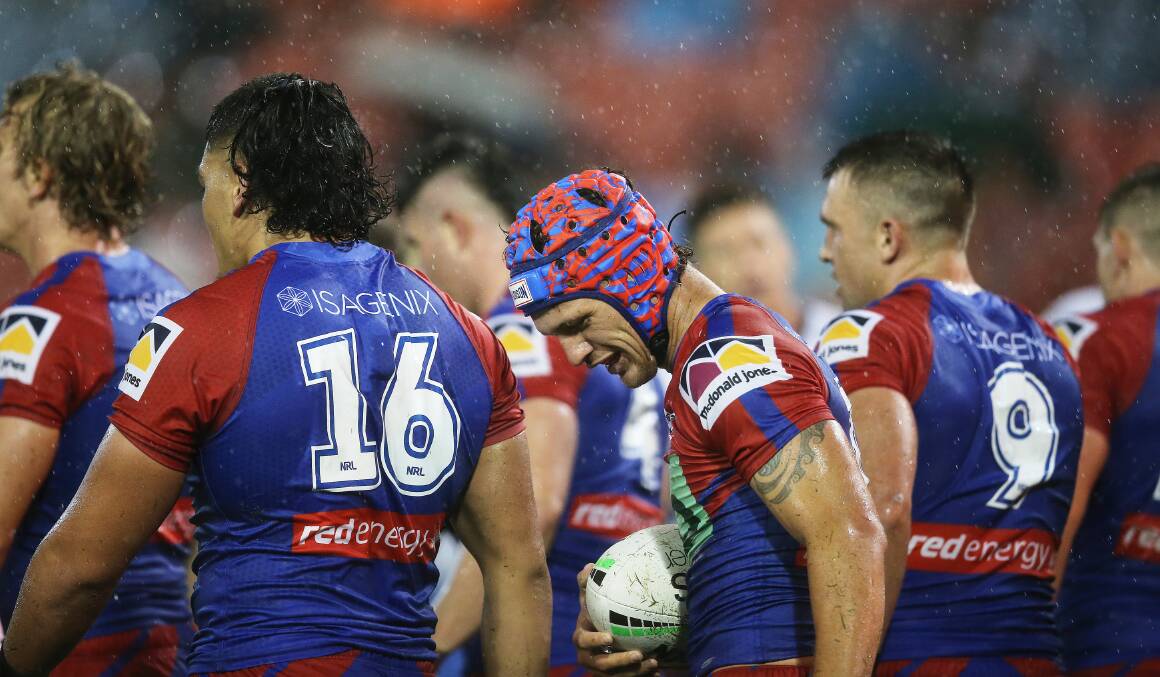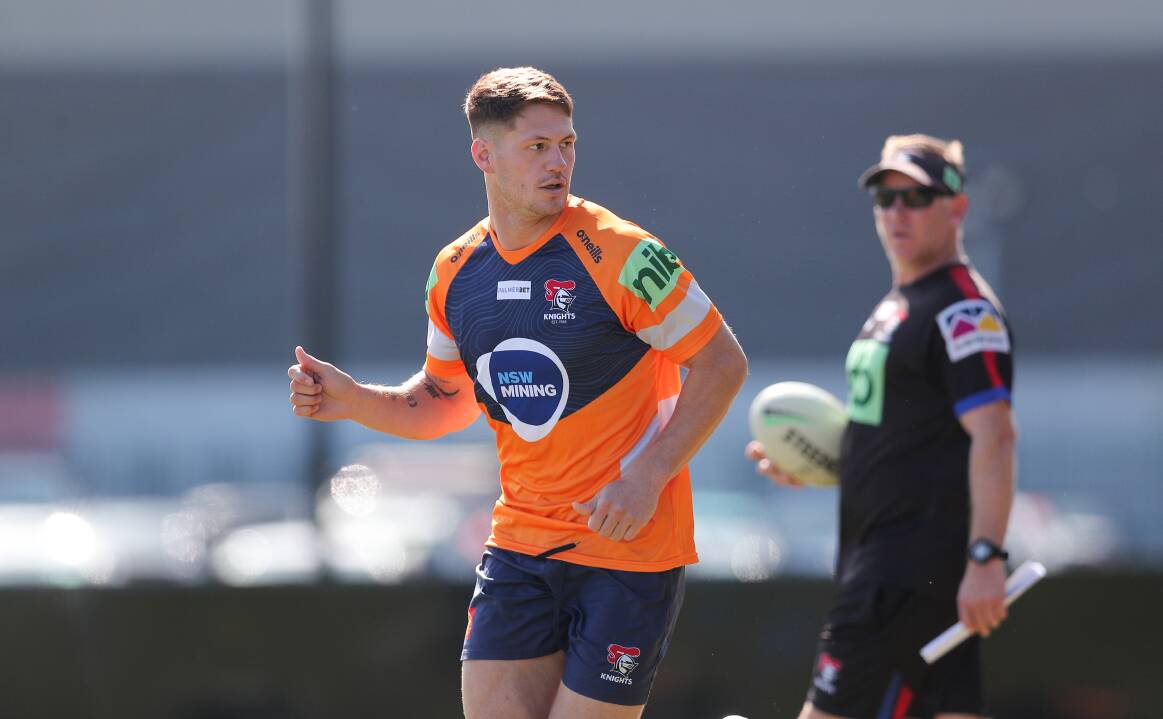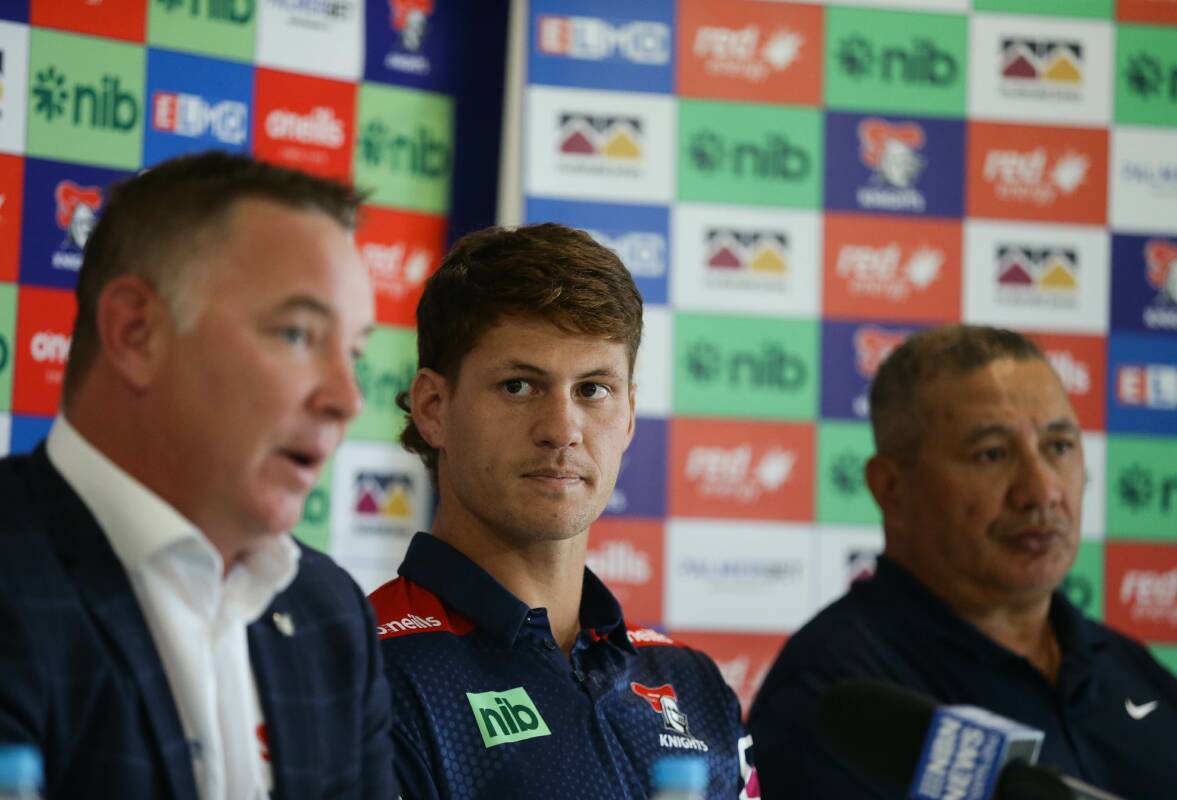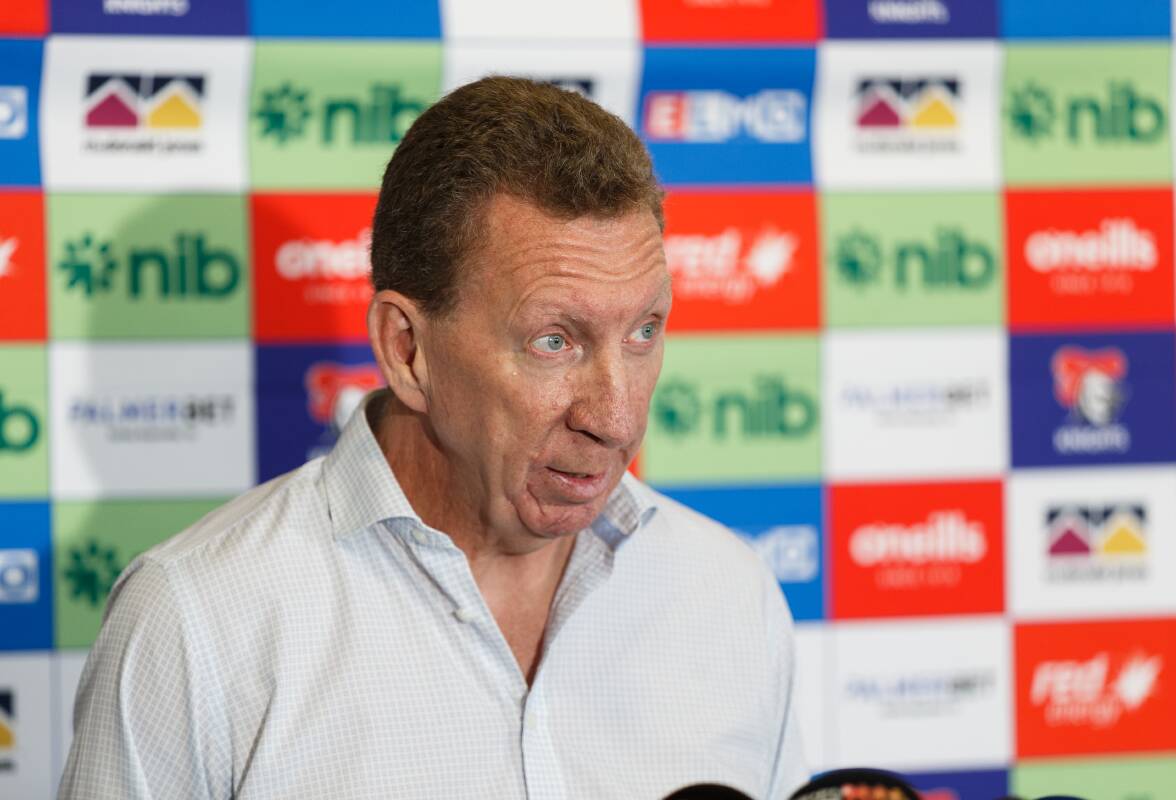
After two consecutive finals appearances, Knights coach Adam O'Brien had enough credit in the bank to survive what was one of Newcastle's worst seasons in recent memory outside the hat-trick of wooden spoons collected across 2015-17.
But the third-year coach, who admitted he sought a heart check-up midway through the season such was the stress he was feeling, has a plethora of problems he and his coaching team must fix if the Knights are to improve in 2023.
But so does the club as a whole, as evidenced by the series of off-field issues that at the very least were a distraction, if not a hindrance, on the NRL side's campaign.
The negatives of 2022 could probably fill a few pages, but we'll keep it to a similar length as the first part of the NRL side's season review - the positives - published on Thursday.
Lack of leadership
It was always going to be a risk handing Kalyn Ponga the captaincy, given his age and the laid-back character everyone had come to know.
O'Brien said trying to keep the fullback at the club was not a huge factor in giving him the role, insisting he was ready. But Ponga showed his lack of leadership experience.

He wasn't helped by the club letting on-field general Mitchell Pearce go and having a key lieutenant in hooker Jayden Brailey sidelined for the first half of the year, but looking back Newcastle's marquee man was a questionable choice to be skipper.
In saying that, there didn't seem to be too many others jumping out of the box to take it on.
Director of football Peter Parr has expressed a desire to see Ponga keep the role, highlighting how at his former club, North Queensland, halfback Johnathan Thurston initially had some wobbles before emerging as one of the great leaders.
Ponga has serious strides to make, but 2022 should have been a steep learning curve for the 24-year-old.
Caught half short
Regardless of whether letting Mitchell Pearce leave the club a year early was the right thing to do or not, his absence and the lack of a similar replacement cost the Knights dearly this season.
Faith was placed in Adam Clune and Jake Clifford and while they started well, Clune looked to be playing on one leg at times after an early knee injury, and Clifford ran into confidence issues and was ultimately dropped from the side.
It's rare for a coach to pull a half off the field, but Clifford's benching against the Storm in round eight was a sign of how far he had fallen.
Despite attempts to recruit Luke Brooks, the Knights were left high and dry without an experienced playmaker to guide their attack and general play.
The club landed Anthony Milford but, having played little football, his impact was short of what was needed.
You only have to look at the Broncos and Cowboys to get an appreciation of what difference an in-form, seasoned half can make.
Bland attack
Slow. Clunky. Stale. Unadventurous. The Knights were anything but an attacking threat this year, averaging only 14.9 points per game.
That was a significant drop on the averages of 17.9 (2021) and 21.0 (2020) in O'Brien's first two seasons, and was the lowest average points scored since the horror 2016 campaign (11.7).
Obviously tied into the halves situation and without some Ponga brilliance, the side struggled to create try-scoring opportunities.
They made an average 3.5 line-breaks per game and must improve how they build attacking pressure.
The last-tackle options were often mind-numbing, and in some cases detrimental when they handed the opposition an easy way out of their own end.
Injury curse
Newcastle have copped a rough run with injuries in recent seasons and it only got worse in 2022.
Almost every player seemed to spend at least half a dozen games out. Indeed, only four players made more than 20 appearances.
The injury toll was at its heaviest early in the year, when at one stage the club had more than 1000 games of experience sidelined.
The club's depth came under serious strain with O'Brien one week suggesting he might have to pull "blokes off the street" to play.
The depth isn't as strong as it could be, but you've got to make the most of what you've got. Plenty of other clubs were in similar positions and managed to notch a few more wins.
Off-field distractions
How much Kalyn Ponga's prolonged contract saga impacted the team early in the season is difficult to say, but it became a full-blown circus.
That was no more evidenced by the story that broke midway through the side's clash with the Dragons that the Knights had reportedly pulled an offer for Ponga. After Newcastle succumbed to their opponents in Wollongong, O'Brien was hit with a litany of questions about the situation in the post-match press conference.
A couple of days later, the Knights ultimately brought the situation to a head and announced Ponga's extension.
But the constant speculation about Ponga joining the Dolphins had played out for months. It was a clear distraction for both the club and player, who was entering his first season as a captain, and shouldn't have played out for as long as it did.

Later in the year, the club had an embarrassing few days with the David Klemmer-Hayden Knowles fiasco.
The player-trainer on-field exchange turned into way more than it should have and ultimately dominated headlines for almost a week.
The blame for that drama can, at least partly, be attributed to all involved. But again, poor management of the situation reflected badly on the club.
The incident was what new director of football Peter Parr walked into on his first day.

Then you had the Ponga-Kurt Mann toilet cubicle incident.
Neither player is yet to speak publicly about the situation, and the Knights are yet to - at least publicly - sanction either player for being out on the booze while the team was getting thumped by the Broncos in Brisbane.
Despite drinking while injured widely being a big no-no at other clubs, Parr said neither player had been given strict instruction not to do so.
The NRL's integrity unit chose not to sanction either player but, whatever occurred, it reflected it extremely poorly on the club and raised questions about its culture.
Defensive collapses
Newcastle were in the contest in at least half a dozen games they lost, but their second-half defence killed them. Think Manly in round five, North Queensland in round nine, Brisbane in round 11, Canberra in round 15 ... some of the late collapses put a real sour note on what had been reasonable performances.
The edge defence was terrible on occasions. The team conceded 662 points in total, 91 more than in 2021 despite playing one less game. The average points conceded, 26.5 per game, was well up on the 18.7 in O'Brien's first year. No team can be winning regularly with defence like that.
Brutal home beatings
They are among the most well-supported clubs, but the Knights' performances at home would have tested the resolve of even their most passionate fans to keep turning up. Ten losses in 12 games at McDonald Jones Stadium equalled the embarrassing club record of 2016, when the team ran last.
The number of losses was bad, but the nature of them was alarming. Newcastle conceded 30 or more points in eight home games, including a 50-2 battering by Melbourne that wasn't the only performance O'Brien felt compelled to apologise for. Strong home support should be a weapon for the side to help them win games, but the coach said after a run of losses it felt like a weight to the players, the pressure of performing for such loyal supporters.
Team spirit
Winning binds people together, but the Knights looked void of passion at times this season. There were games where you could identify only maybe a handful of players who appeared to be trying their guts out.
Injuries limited his options, but O'Brien was hesitant to drop players on form, saying he didn't want to just "hand out" jerseys to those who hadn't earned them, but it will be interesting to see if he adopts a different approach in 2023.







